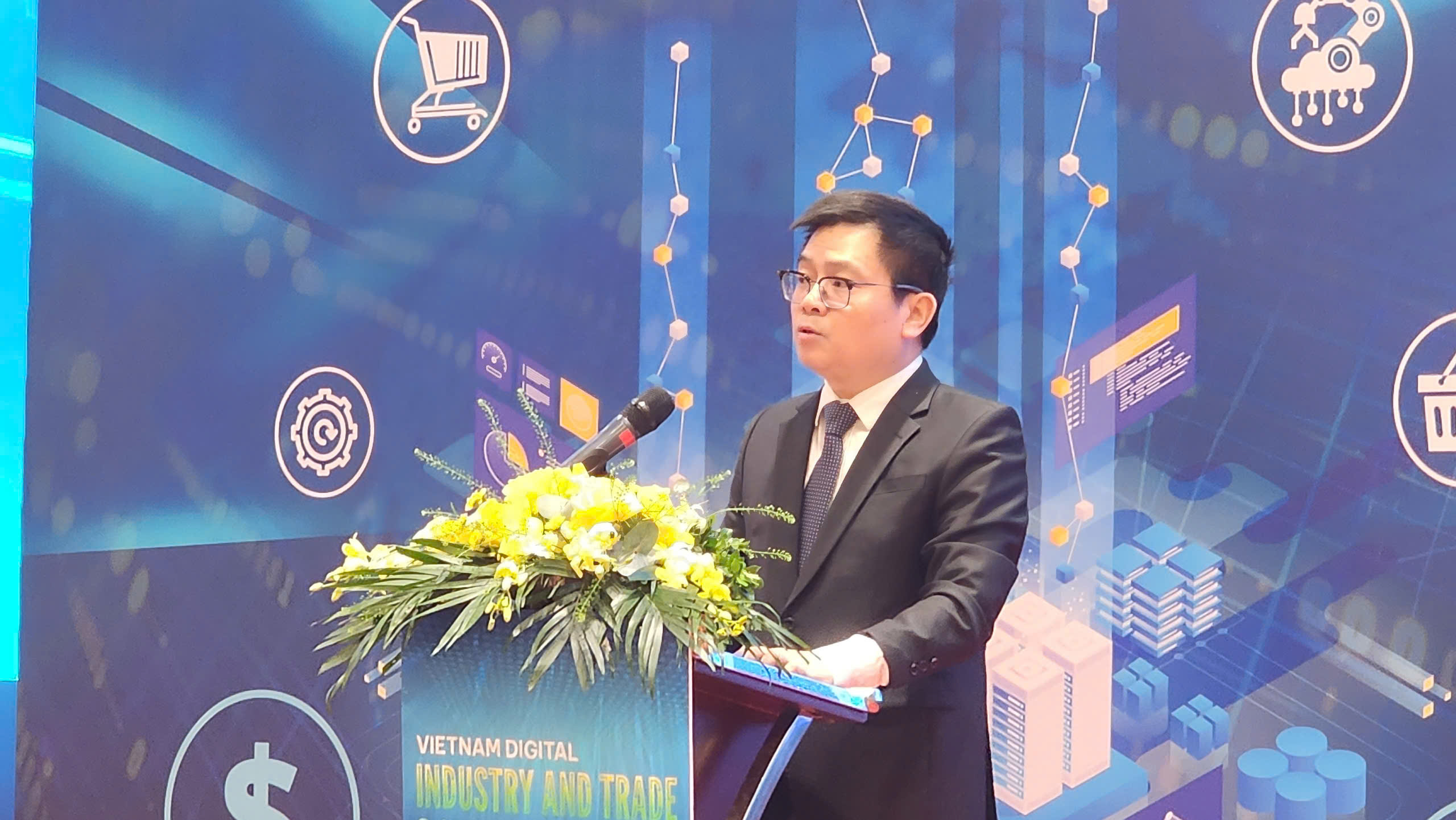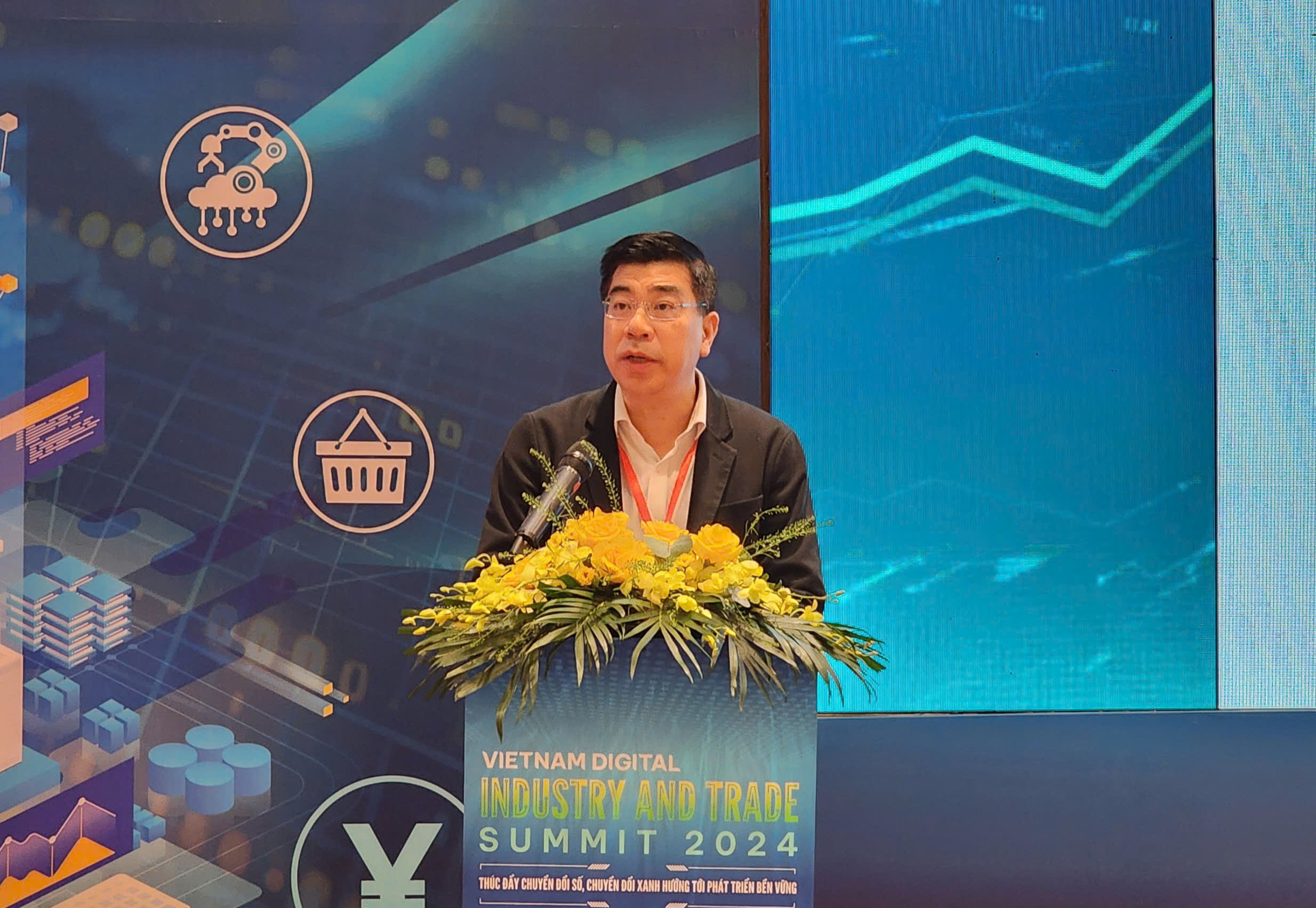Speaking at the Vietnam Digital Industry and Trade Summit 2024 on November 21, with the theme “Promoting Digital and Green Transformation Towards Sustainable Development” and hosted by the Ministry of Industry and Trade (MoIT), Deputy Minister of Industry and Trade Truong Thanh Hoai emphasized that, amid signs of global economic recovery, Vietnam’s e-commerce and digital economy remain key drivers of socio-economic development.
Booming digital economy
According to the “e-Conomy SEA 2024” report from Google and Temasek, Vietnam’s internet economy is estimated to reach $36 billion this year, marking a 16 per cent increase compared to 2023. Of this, e-commerce accounts for 61 per cent, with a market size of $22 billion reflecting 18 per cent year-on-year growth.
Mr. Tran Minh Tuan, Director of the Digital Economy and Digital Society Department at the Ministry of Information and Communications (MoIC), said that Vietnam led Southeast Asia in digital economic growth in 2022 and 2023, posting average growth three-times higher than GDP growth.

In the wholesale and retail sectors, online retail has experienced robust growth in Vietnam, making a significant contribution to the digital economy. The country’s B2C market reached $20.5 billion in 2023, accounting for 8 per cent of total consumer service revenue, with a growth rate of 25 per cent, surpassing the 20 per cent growth recorded in 2022.
Core industrial sectors, such as textiles and garments, have seen initial success in digital transformation, particularly in export-related activities like database development and automation. According to Dr. Hoang Xuan Hiep, Rector of the Hanoi Industrial Textile Garment University, 35 per cent of producers have integrated IoT, 42 per cent have adopted cloud computing, 18 per cent use blockchain technology, and 27 per cent have implemented data management platforms.
Vietnam’s digital economy now ranks third in the region, reflecting substantial government and private sector efforts in digital transformation. Experts predict that by 2030, the country’s digital economy could reach a valuation of between $90 billion and $200 billion.
Uneven growth in the digital economy
Despite notable achievements positioning Vietnam as a regional leader in digital transformation, challenges and disparities persist.
E-commerce is a standout sector, accounting for more than 60 per cent of the digital economy’s total scale. However, according to Ms. Lai Viet Anh, Deputy Director of the E-Commerce and Digital Economy Agency at MoIT, the sector is showing signs of “overheated” growth.

This rapid expansion has led to challenges such as unfair competition due to the entry of foreign e-commerce companies, which disadvantage local businesses, as well as inadequate regulations to address counterfeit and substandard goods.
Additionally, e-commerce growth is unevenly distributed, with most activity concentrated in major cities like Hanoi and Ho Chi Minh City. The MoIT has set a goal for localities outside of these cities to account for 50 per cent of the country’s e-commerce value by 2025, but this target appears increasingly difficult to achieve.
The manufacturing sector also lags behind in digital transformation. Many factories and production facilities are outdated, complicating efforts to integrate digital technologies and train the workforce. Mr. Tuan noted the low readiness for digital transformation in industrial enterprises, while Mr. Phạm Nguyên Hùng, Director of the Industry Agency at MoIT, identified outdated management practices, a lack of skilled human resources, and reliance on outdated technology as major obstacles.
Energy supply represents another pressing concern. Over the next six years, electricity demand is expected to nearly double from 276 billion kWh to over 540 billion kWh, raising challenges for ensuring sufficient power supply to sustain digital transformation efforts across various industries.
To accelerate digital transformation in the wholesale and retail sectors, the MoIC is collaborating with the MoIT to support six ecosystem providers that integrate e-commerce, payment, logistics, and warehousing services. This initiative aims to help small businesses swiftly adapt to digitalization trends.
The MoIT has also urged e-commerce platforms to held Vietnamese small and medium-sized enterprises (SMEs) in building their brands and connecting with customers on digital platforms.
In industrial sectors, partnerships with corporations like Samsung and Toyota have enabled the training of consultants and the implementation of modern production and quality management models. Collaborations with the International Finance Corporation (IFC) have resulted in the creation of digital transformation assessment tools and capacity-building programs for industrial businesses.
Looking ahead, the Ministry plans to finalize the legal framework for digital transformation, including revising and supplementing regulatory documents. It also aims to launch programs that support industrial businesses in adopting Industry 4.0 technologies and to promote the development of smart manufacturing through digital transformation initiatives, with a roadmap extending to 2030. These efforts aim to address existing disparities and position Vietnam’s economy for sustainable and competitive growth in the digital era.









 Google translate
Google translate